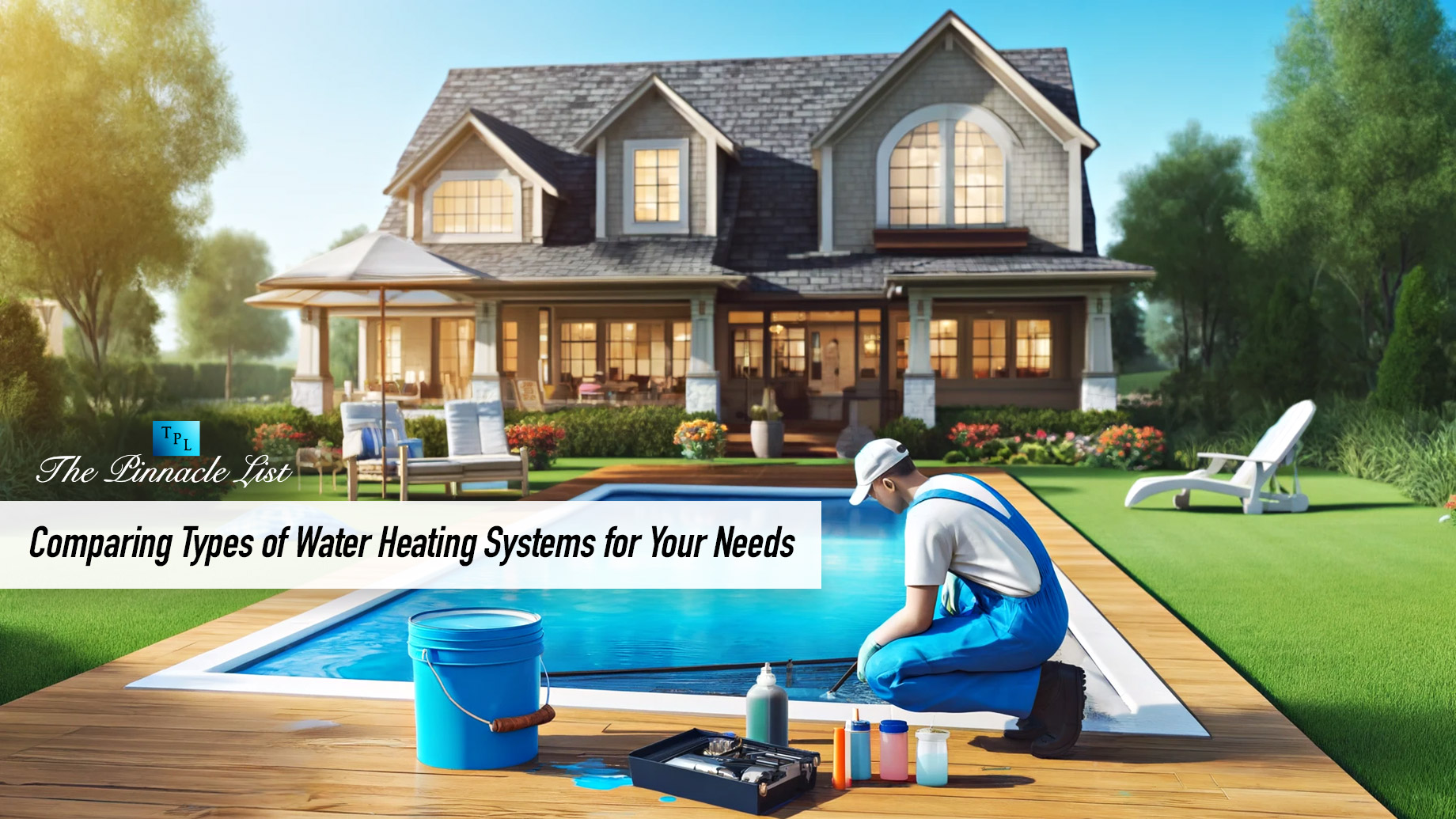
Have you ever wondered which types of water heating systems are best for your home? Choosing the right system can save you money, energy, and ensure your household has a steady supply of hot water.
In this article, we’ll break down the pros and cons of different types of water heating systems, helping you make an informed decision that suits your needs. Whether you’re building a new home or upgrading your current setup, understanding your options is key to experiencing comfort and efficiency.
Traditional Water Heaters
Conventional storage water heaters are the most common type in many households. They operate by heating water in a tank, which is then stored until needed. The size of the tank can vary, affecting how much hot water is available at one time.
These systems are generally easy to install and maintain. However, they can be less energy-efficient because they continuously heat water, even when it’s not being used.
Tankless Water Heaters
Tankless water heaters, also known as on-demand water heaters, heat water directly without the use of a storage tank. When hot water is needed, a powerful burner or electric element heats the water as it passes through the unit. This ensures a continuous supply of hot water.
One of the main benefits of tankless water heaters is their energy efficiency, as they only heat water when required. However, they can have a higher initial installation cost compared to conventional storage water heaters.
Heat Pump Water Heaters
Heat pump water heaters work by transferring heat from the air or ground to heat the water. They use electricity to move heat rather than generating it directly, making them more energy-efficient. These systems often require larger space for installation due to their size and the need for proper ventilation.
While heat pump water heaters can save energy costs, they may not be suitable for all climates. They generally function best in warmer environments where they can draw heat efficiently from the air.
Solar Water Heaters
Solar water heaters harness energy from the sun to heat water for your home. They typically consist of solar collectors and a storage tank. The heated water is then stored for use when needed.
These systems are environmentally friendly and can significantly reduce energy costs. However, they depend on sunlight, so their efficiency can vary based on your location and weather conditions.
Condensing Water Heaters
Condensing water heaters are designed to increase energy efficiency by capturing and utilizing the heat from exhaust gases. They have a secondary heat exchanger that extracts additional heat from the exhaust before it gets vented outside. This process makes them highly efficient, especially for homes using natural gas.
The initial cost of condensing water heaters can be high, but the energy savings over time can offset this expense. They are particularly suitable for larger households with higher hot water demands.
Indirect Water Heaters
Indirect water heaters use the home’s space heating system to heat water. They have a storage tank that holds water heated by the boiler or furnace. These systems are typically more energy-efficient in colder climates where the heating system runs most of the time.
One advantage of indirect water heaters is their ability to provide a large supply of hot water. However, they rely on the space heating system, so they may not be efficient if installed in homes with less frequent heating requirements.
Point-of-Use Water Heaters
Point-of-use water heaters are small units designed to provide hot water to a single location, like a sink or shower. They are installed near the point of use, reducing the time it takes for hot water to reach the tap. These heaters are convenient for areas that are far from the main water heating system or for low-demand applications.
One benefit of point-of-use water heaters is their ability to save energy by heating only the water that is needed. They are also relatively easy to install and can be a cost-effective solution for targeted areas in your home.
Electric Resistance Water Heaters
Resistance to electricity Hot water heaters use electric parts to heat the water in their tanks. They work by running electricity through resistant parts, which warms the water around them. Installing and maintaining these systems is usually pretty easy, which is why many homes choose them.
Even though they are simple to use, electric resistance water heaters may not use as little energy as other types. Because they need power to keep the water at the right temperature, they usually have higher running costs.
Hybrid Water Heaters
A hybrid water heater has traits of both traditional tank water heaters and heat pump technology. They save energy because they use a heat pump to take heat from the air and move it to the water. For times when a lot of hot water is needed, these devices also have electric resistance coils.
People can save money on their energy bills with hybrid water heaters. Even though they cost more upfront, the money you save in the long run often makes it worth it.
Circulating Water Heaters
Circulating water heaters maintain a constant flow of hot water through your home’s pipes. This system ensures that hot water is always available at the tap without the usual wait time. By continuously circulating hot water, it reduces the time wasted waiting for water to heat up.
While circulating water heaters can improve convenience, they can also increase energy consumption. These systems may require additional insulation to minimize heat loss from pipes.
Heat Your Way Through With the Hottest Types of Water Heating!
Choosing from the various types of water heating systems depends on your specific needs and circumstances. Each type offers unique benefits and potential drawbacks, whether it’s energy efficiency, installation cost, or convenience.
By understanding the different types of water heating options available, you can select a system that ensures consistent hot water while aligning with your budget and environmental preferences.